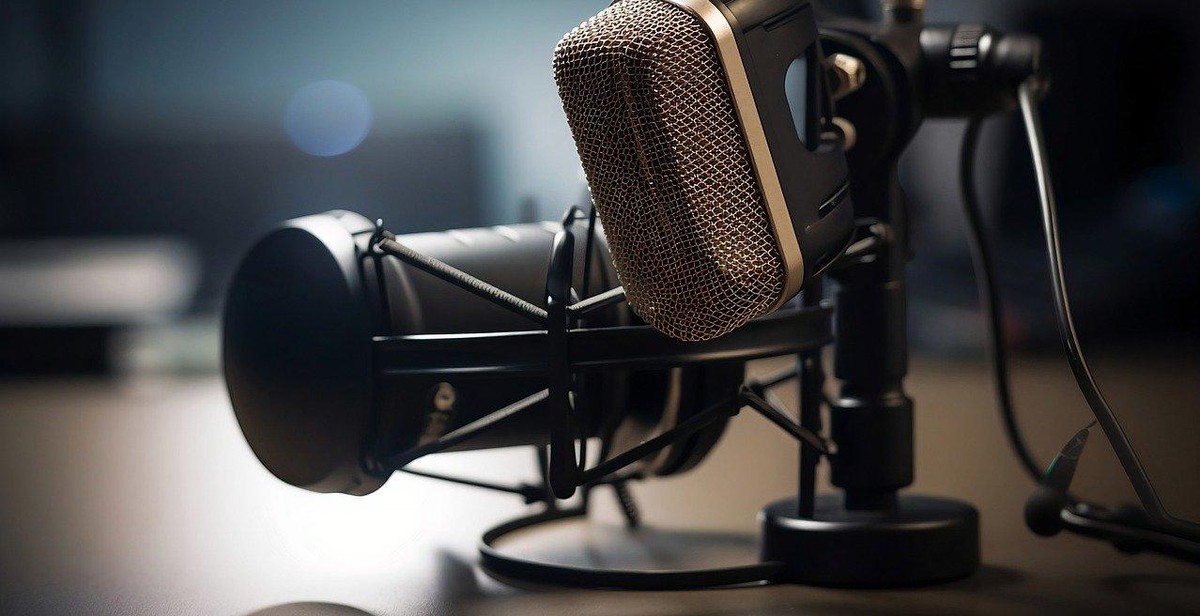How to Start a Podcast: Tips for Planning, Recording, and Promoting Your Show
Podcasting has become a popular medium for sharing information, stories, and ideas. With the rise of smartphones and other portable devices, people can now listen to podcasts anytime, anywhere. As a result, more and more individuals and businesses are starting their own podcasts to reach larger audiences and engage with their listeners.
Why Start a Podcast?
There are many reasons why you might want to start a podcast. For one, podcasts are a great way to share your expertise and knowledge with others. You can use them to discuss topics that you’re passionate about, share your experiences, or provide advice to others.
Podcasts can also help you build your brand and establish yourself as an authority in your industry. By consistently producing high-quality content, you can attract new listeners and grow your audience.
Additionally, podcasts can be a great way to connect with your audience on a more personal level. Unlike other forms of content, podcasts allow you to have a one-on-one conversation with your listeners, which can help you build stronger relationships with them.
In this article, we’ll provide you with tips and strategies for planning, recording, and promoting your podcast. Whether you’re just starting out or looking to take your podcast to the next level, we’ve got you covered.
Planning Your Podcast
Before diving into the world of podcasting, it’s important to have a clear plan in place. This will help you stay focused and ensure that your podcast is successful. Here are some tips for planning your podcast:
Choosing a Topic
The first step in planning your podcast is choosing a topic. This can be anything that you’re passionate about, but it’s important to choose a topic that has a broad enough appeal to attract listeners. Consider your interests and expertise, and think about what you can offer your audience that’s unique. Some popular podcast topics include:
- Comedy
- True crime
- Politics
- Sports
- Pop culture
Once you’ve chosen your topic, it’s important to do some research to make sure that there’s an audience for it. Look for similar podcasts and see how they’re doing. This can give you an idea of what works and what doesn’t.
Defining Your Target Audience
Once you’ve chosen your topic, it’s important to define your target audience. Who are you creating your podcast for? What are their interests and needs? Understanding your audience will help you create content that resonates with them. Consider factors such as age, gender, location, and interests.
Creating listener personas can be a helpful exercise in defining your target audience. This involves creating fictional profiles of your ideal listeners, including details such as their age, occupation, and interests. This can help you create content that speaks directly to your target audience.
Creating a Format
Once you’ve chosen your topic and defined your target audience, it’s time to create a format for your podcast. This includes deciding on the length of your episodes, the frequency of your episodes, and the structure of each episode.
Consider the following when creating your format:
- Length: How long will each episode be? Will they all be the same length?
- Frequency: How often will you release new episodes? Weekly? Bi-weekly? Monthly?
- Structure: What will the structure of each episode be? Will you have segments or guests?
It’s important to create a format that works for you and your audience. Consistency is key when it comes to podcasting, so make sure that you can commit to your chosen format.
| Tip: | Create a content calendar to help you plan your episodes in advance. This can help you stay organized and ensure that you always have fresh content for your listeners. |
|---|

Recording Your Podcast
Once you have planned your podcast and decided on the format and topic, it’s time to start recording your show. Here are some tips on selecting the right equipment, creating a recording space, and recording and editing your podcast.
Selecting the Right Equipment
When it comes to equipment, you don’t need to break the bank to start a podcast. However, it’s important to invest in quality tools to ensure your podcast sounds professional and is enjoyable to listen to.
At a minimum, you will need a microphone and headphones. Look for a microphone that is specifically designed for podcasting or broadcasting, and consider getting a pop filter to reduce background noise. For headphones, choose a pair that is comfortable and has good sound quality.
If you plan on recording your podcast on-the-go, you may want to invest in a portable recorder or a USB microphone that can be plugged directly into your computer. This will allow you to record from anywhere without sacrificing sound quality.
Creating a Recording Space
When it comes to recording your podcast, the environment is just as important as the equipment. Choose a quiet space with minimal background noise, such as a spare room or a closet filled with clothes. You can also use soundproofing materials, such as foam panels, to reduce echoes and outside noise.
Make sure the room is well-lit and comfortable, as you may be spending a lot of time there. Avoid recording in a space with hard surfaces, such as a tiled floor or a bare wall, as this can cause echoes and make your podcast sound unprofessional.
Recording and Editing Your Show
Before you start recording, make sure your equipment is set up correctly and test the sound quality. It’s a good idea to do a sound check before each recording session to ensure everything is working properly.
When recording your podcast, speak clearly and at a consistent volume. Avoid speaking too close or too far from the microphone, as this can cause distortion or a drop in sound quality.
Once you have finished recording, it’s time to edit your show. Use editing software, such as Audacity or GarageBand, to remove any mistakes, pauses, or background noise. You can also add music or sound effects to enhance your podcast.
When editing, keep in mind the length of your podcast. Aim for a length that is easy to listen to and fits your topic. Finally, export your podcast as an MP3 file and upload it to your hosting platform.
In conclusion
Recording your podcast requires some investment in equipment and time, but it’s worth it to create a professional and enjoyable show. With these tips, you can start recording and editing your podcast with confidence.

Promoting Your Podcast
After you have recorded and edited your podcast, the next step is to promote it. Promotion is key to reaching your target audience and growing your listener base. Here are some effective ways to promote your podcast:
Creating a Website
One of the most important steps in promoting your podcast is creating a website. Your website should be a hub for your podcast, providing listeners with information about your show, episode summaries, and links to your podcast on various platforms. You can also use your website to promote upcoming episodes, share behind-the-scenes content, and encourage listeners to subscribe.
When creating your website, make sure it is visually appealing, easy to navigate, and optimized for search engines. Use relevant keywords in your content to improve your website’s SEO and make it more discoverable to potential listeners.
Leveraging Social Media
Social media is a powerful tool for promoting your podcast. You can use platforms like Twitter, Facebook, Instagram, and LinkedIn to share your podcast episodes, engage with listeners, and connect with other podcasters in your niche. When promoting your podcast on social media, be sure to use relevant hashtags, tag other podcasters or influencers in your posts, and encourage your followers to share your content.
You can also use social media to create a community around your podcast. Encourage listeners to share their thoughts and feedback, and respond to comments and messages to build a loyal following.
Collaborating with Other Podcasters
Collaborating with other podcasters in your niche can be a great way to promote your podcast to a wider audience. You can guest on other podcasts, invite other podcasters to be guests on your show, or even collaborate on a joint episode. When collaborating with other podcasters, make sure to promote the episode on your website and social media channels to maximize exposure.
Collaborating with other podcasters can also help you build relationships in the podcasting community, which can lead to future opportunities and collaborations.
| Key Takeaways: |
|---|
| Create a website to serve as a hub for your podcast and improve discoverability through SEO. |
| Leverage social media to promote your podcast, engage with listeners, and build a community. |
| Collaborate with other podcasters in your niche to reach a wider audience and build relationships. |

Conclusion
Starting a podcast can be a rewarding and exciting experience, but it requires planning, dedication, and hard work. By following these tips for planning, recording, and promoting your show, you can create a successful podcast that resonates with your target audience.
Remember to Plan Ahead
Before hitting the record button, take the time to plan your podcast episodes. This includes selecting a topic, creating an outline, and preparing your equipment. By planning ahead, you can ensure that your podcast is well-organized and engaging.
Focus on Quality Recordings
Invest in quality equipment and software to ensure that your recordings are clear and professional. Practice good microphone technique and consider soundproofing your recording space to minimize background noise.
Promote Your Podcast Effectively
Take advantage of social media and other marketing channels to promote your podcast. Encourage your listeners to leave reviews and share your episodes with others. By consistently promoting your podcast, you can grow your audience and increase your reach.
Stay Committed to Your Podcast
Creating a successful podcast takes time, effort, and dedication. Stay committed to your podcast and consistently produce high-quality content. By staying true to your vision and delivering value to your audience, you can build a loyal following and achieve long-term success.
| Tip: | Consider collaborating with other podcasters or bringing on guest speakers to add variety and fresh perspectives to your show. |
Starting a podcast may seem daunting, but with the right approach and mindset, it can be a fulfilling and enjoyable experience. Keep these tips in mind and start planning your podcast today!
